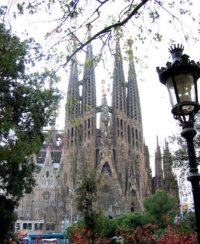West Chester University Wind Ensemble with interesting contemporary music

Conductor Andres Yozviak has intensively studied compositions based on a psychological background. “Hosannas” contains a collection of contemporary composers such as Kael Husa, John Corigliano, Charles Ives, Andrew Boysen jr. and the recently deceased David Maslanka. The latter is the eponym of the CD with his composition.
Karel Husa writes about his work “Semetana Fanfare” that he expanded and developed these themes in memory of Smetana, whom he so admired as a young man. Through Smetana’s sincere work, his behaviour and his statements in a politically difficult time, a time of struggle for Czech identity, he had the greatest influence on Husa. Husa remembered a performance of Smetana’s “My Fatherland” during the Nazi occupation in World War II. At the end of the concert the audience was so upset that Smetana’s work became a symbol of the Czech resistance movement. The short work is based on two themes from Smetana’s tone poem “Wallensteins Lager”, which he composed in 1859 during his Swedish exile in Gothenburg.
“Lullaby for Natalie” was commissioned by the husband of the world-famous violinist Anne Akiki-Meyers to give birth to her daughter Natalie. Corigliano later performed the orchestral piece at the Cabrillo Festival of Contemporary Music on the occasion of the conductor’s celebration, Marin Alsop’s twentieth year as Music Director of the festival. Corigliano explains that the piece should reflect the “tenderness and soothing quality of a lullaby”.
Although he is professionally trained as a composer and organist, Charles Ives led a double life as a musician and insurance salesman – his contribution in both areas was impressive. In his career as an insurance salesman and actor, Ives developed creative ways to structure life insurance packages for people with financial means, laying the foundation for the modern practice of estate planning. As a composer, Ives spent a long time composing and revising his music, much of which was not performed during his lifetime. Nevertheless, he was one of the first composers to work on a systematic programme of experimental music using musical techniques such as polytonality, polyrhythmics, tone clusters, aleatoric elements and microtonality, anticipating many musical innovations of the 20th century. Old Home Days is a collection of pieces composed by Ives in the first decades of the 20th century, but none was written for the band. Most movements were set for voice and/or keyboard. The pieces in the suite were transcribed by Jonathan Elkus for band.
The inspiration for the piece comes from an interview Gould gave to Bruce Duffie in 1988. When the composer read the interview, I was amazed at how much he agreed with Gould’s words. Gould discussed what makes some pieces successful and others fail, and he talked about the way certain works seem to have a visceral influence on the listener. This is the Drum, in which Boysen refers to the ability of drums whose sound seems to immediately connect with the listener. Boysen decided to honor Morton Gould by trying to create a piece that created this visceral impression and staged the drum in many ways. The source material for the piece comes from the opening motif of Gould’s most famous work, American Salute. The piece also includes the use of a marching machine used by Gould in his famous Symphony for Bans.
Hosannas: The psychologist Carl Jung described the first half of life as dedicated to the establishment of the self and the place in the world, the second as the journey to God. Once you are over 70 years old, this approach becomes intentional. This is accompanied by an attitude of surprise, acceptance and praise – the call of praise – for all that is. Everything is divine, and this is the clear, sharp intention to convey this understanding to the generations that emerge behind us.
This music shows once again the composer’s longstanding occupation with J.S. Bach’s “371 four-part chorales”. For almost 25 years this composer has been singing from it almost daily and composing his own chorales in the old style. The practice has become an ever deeper meditative prayer. The melodies and titles are certainly of Christian origin, but Maslanka saw and felt them as a deep expression of his common humanity, transcending origin and label. Her attitudes in this composition are centered and calm, opening the space for self-reflection and the voice of praise.
Hosannas, West Chester University Wind Ensemble, Andrew Yozviak, Conductor






